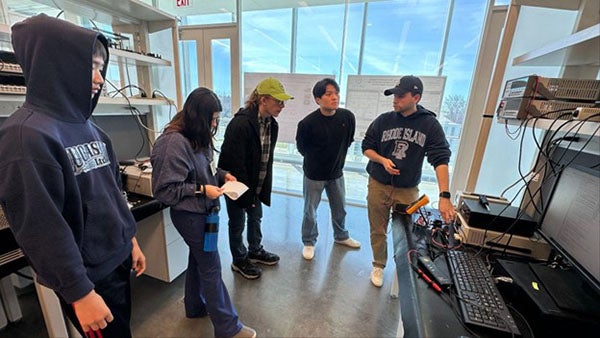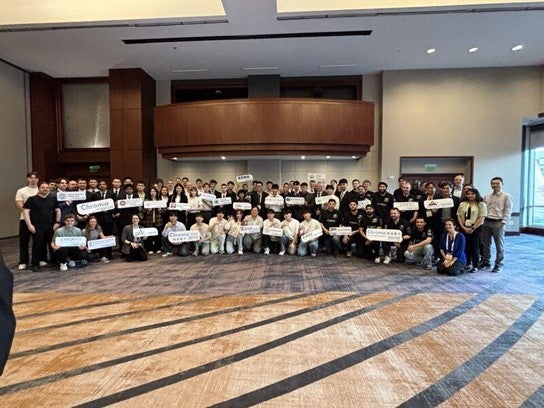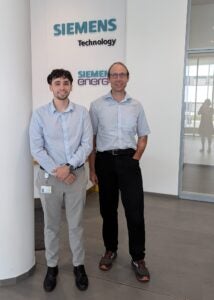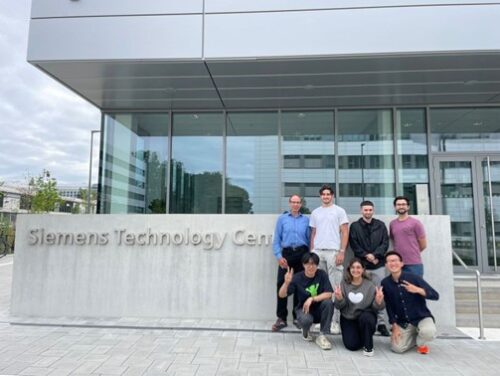As a child, Gianni Smith always possessed a curiosity for how things worked. Various electronics, remote control cars, household appliances, it didn’t matter. Perhaps that is why he pursued an electrical engineering degree. But in the end, he got so much more.
Smith, from Pawtucket, Rhode Island, graduated this May with degrees in electrical engineering and German from the University of Rhode Island and will continue his studies with a Science, Mathematics, and Research for Transformation (SMART) Department of Defense scholarship to pursue a Ph.D. at URI. The scholarship offers Smith full tuition, annual stipends, internships, and guarantees civilian employment with the Department of Defense after graduation.
So how did he go from curiosity to doctoral track? Not easily. Smith initially struggled with math in high school.
“I had to really put a lot of effort into catching up with my fellow classmates by taking summer classes,” said Smith.

Once he managed to get the knowledge and grades, it was time to consider a university. “I found URI to be the best choice for me considering cost, location, and the exciting curriculum,” said Smith. “Two key things that differentiate URI are its perfect blend of coastal New England charm with vibrant campus energy, and the unusually strong sense of community where professors know you by name while offering big-school resources.”
He states that even his friends at other schools often commented on how well the College of Engineering at URI combines mentorship opportunities with hands-on research at the undergraduate level and internships that leverage the school’s unique location.
Smith took advantage of those prospects while working in the Power Electronics Lab, where he developed various projects, one of which he took to the IEEE International Future Energy Competition in 2023, 2024 and 2025. The IFEC is an annual undergraduate student competition in the design of power electronic systems. His group attended the semifinals in Atlanta, Georgia, this year and presented a full-bridge LLC resonant converter with hybrid control.

“Over the past three years of competing in the IFEC, I have had the ability to learn about the fundamentals of power electronics, making simulations, building and testing circuits, and ultimately learning all the necessary skills to become a well-skilled electrical engineer,” said Smith.
Furthermore, he helped produce integrated power electronics building blocks for his capstone design project, in which his team built and tested a synchronous boost converter using various drones.
As part of the international engineering program, he also worked at technology company Siemens AG in Erlangen, Germany, for six months doing a study abroad year, where he helped develop a testbench to generate DC series arc faults. Smith later co-authored a paper based on this work utilizing artificial intelligence to assist with DC series arc fault detection, to assist in various applications from renewable energy, public transportation, and residential applications. 

He was a recipient of a Beatrice S. Demers Foreign Language Fellowship to study abroad that covered the cost of his entire year abroad. “My favorite memories from this experience were getting the opportunity to study abroad in Germany. I made lifelong friends and connections, and I was able to visit 17 countries while in Europe,” said Smith. “I got to learn about the many intriguing European cultures.”
Following graduation, Smith will begin the doctoral program through the SMART scholarship under the mentorship of assistant professor Yeohno Jeong. “I am very grateful to have received this once in a lifetime opportunity,” said Smith.
